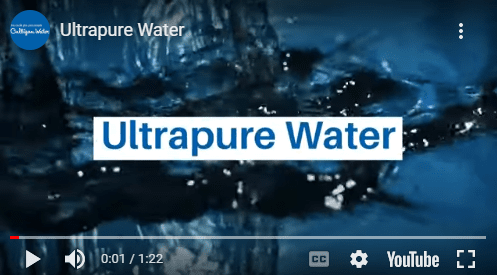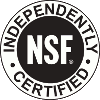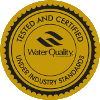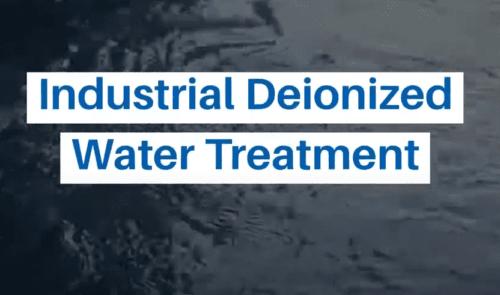Ultrapure Water Systems
Ultrapure water is a vital component in a number of processes, including those frequently used in the pharmaceutical industry. In order classify water as ultrapure, it must exclusively contain H20 and equal amounts of H+ and OH- ions. This extreme purification also gives ultrapure water a conductivity of approximately 0,055 uS/cm at 25° C.
Reynolds Culligan has extensive experience in ultrapure water system design and engineering. Whether the process calls for USP purified water, pharmaceutical WFI water, or high-purity water, our ready team of experts will take pride in creating, installing, and servicing the right ultrapure water system solution for any need.
How Is Ultrapure Water Used?
Ultrapure water serves as a critical reagent in a wide range of laboratory settings within both the semiconductor and pharmaceutical industries. While most regularly found in these two industries, the purification level of ultrapure water makes it ideal for use in any type of highly sensitive lab work.
Industries and Applications Needing Ultrapure Water
Ultrapure water has a wide range of applications, particularly in pharmaceutical and laboratory work.
Pharmaceutical
One of the most frequent uses of ultrapure water is within the pharmaceutical manufacturing industry. Because this sector deals with medicinal goods, high levels of purification are vital to ensuring product integrity. Standard potable water does not meet the necessary specifications which dictate that water used in pharmaceutical processes must have dissolved solids levels at least 10,000 times lower than those of standard potable water. Additionally, water used in this industry must be completely free of organic materials and bacteria.
In order to reduce the level of suspended solids in this water, 98% of the influent water salts must be removed through the process of reverse osmosis. After this initial step, other additional treatments work to produce water at the necessary levels of purity, either through the use of advanced ion exchange or continuous deionization systems.
Laboratories
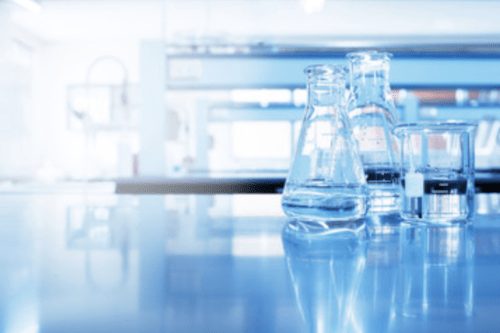
As a requirement, all analytical laboratories use ultrapure water in lieu of standard potable water because ultrapure water has a resistivity of 18.2 MΩ-cm at 25° C. Some typical applications for ultrapure water in an analytical laboratory setting include:
- Cell and tissue cultures
- Flow cytometry
- Pyrogen sensitive applications
However, despite the fact that ultrapure water boasts high levels of resistivity, it may possibly contain contaminants. Endotoxins, nucleases, and organic contaminants have no impact on resistivity values, meaning that often alternative technologies must implemented to remove these impurities. This type of purifying equipment is frequently referred to as a “polisher.” Either fed through a centralized ring main or a localized reverse osmosis system, these polishers serve as a crucial piece in the production of ultrapure water.
Applications
In a wide range of applications across numerous industries, ultrapure water plays an essential role. Some of the most common uses for ultrapure water include:
- High-performance liquid chromatography (HPLC)
- Gas chromatography—mass spectrometry (GC-MS)
- Graphite furnace atomic absorption spectrometry (GFAAS)
- Liquid chromatography—mass spectrometry (LC-MS)
- Immunochemistry (ICC)
- Polymerase chain reaction (PCR)
- Clinical analysers
- Mammalian cell culture
- Trace analysis
Besides these typical applications, ultrapure water assists in helping to address a number of issues. Some problems solved by ultrapure water include:
- Bacterial contamination
- Corrosion
- Dissolved gases
- Dissolved solids
- Organics silica
- Suspended solids
- Total organic carbon
>>> Didn’t find what you were looking for? We have more water treatment solutions here! <<<
Ultrapure Water from Reynolds Culligan
At Reynolds Culligan, we comply with the strict water purification standards set by every major organization, including the American Society for Testing and Materials (ASTM) and the National Committee for Clinical Laboratory Standards (NCCLS). We understand the importance of purified water access to laboratories. Our team of experts has experience with every grade of water purification:
- Type I Reagent Grade Water:Has the highest purity standards and most stringent filtration requirements. It is frequently used in a laboratory setting as a reagent in sensitive procedures which require a high level of accuracy, such as DNA sequencing.
- Type II Reagent Grade Water:As the most common grade, this type is used in general laboratory testing. Also, microbiological procedures and other types of analytical applications depend on Type II water to suit their needs.
- Type III Reagent Grade Water:The lowest grade of laboratory water, Type III water is appropriate for the majority of qualitative analyses and for the everyday practice of rinsing glassware.
No matter what type of ultrapure water required for your project, Reynolds Culligan can create, install, and maintain your ideal ultrapure water system. We are an authorized Elga and Barnstead repair center as well. To learn more about our capabilities, contact us today.


